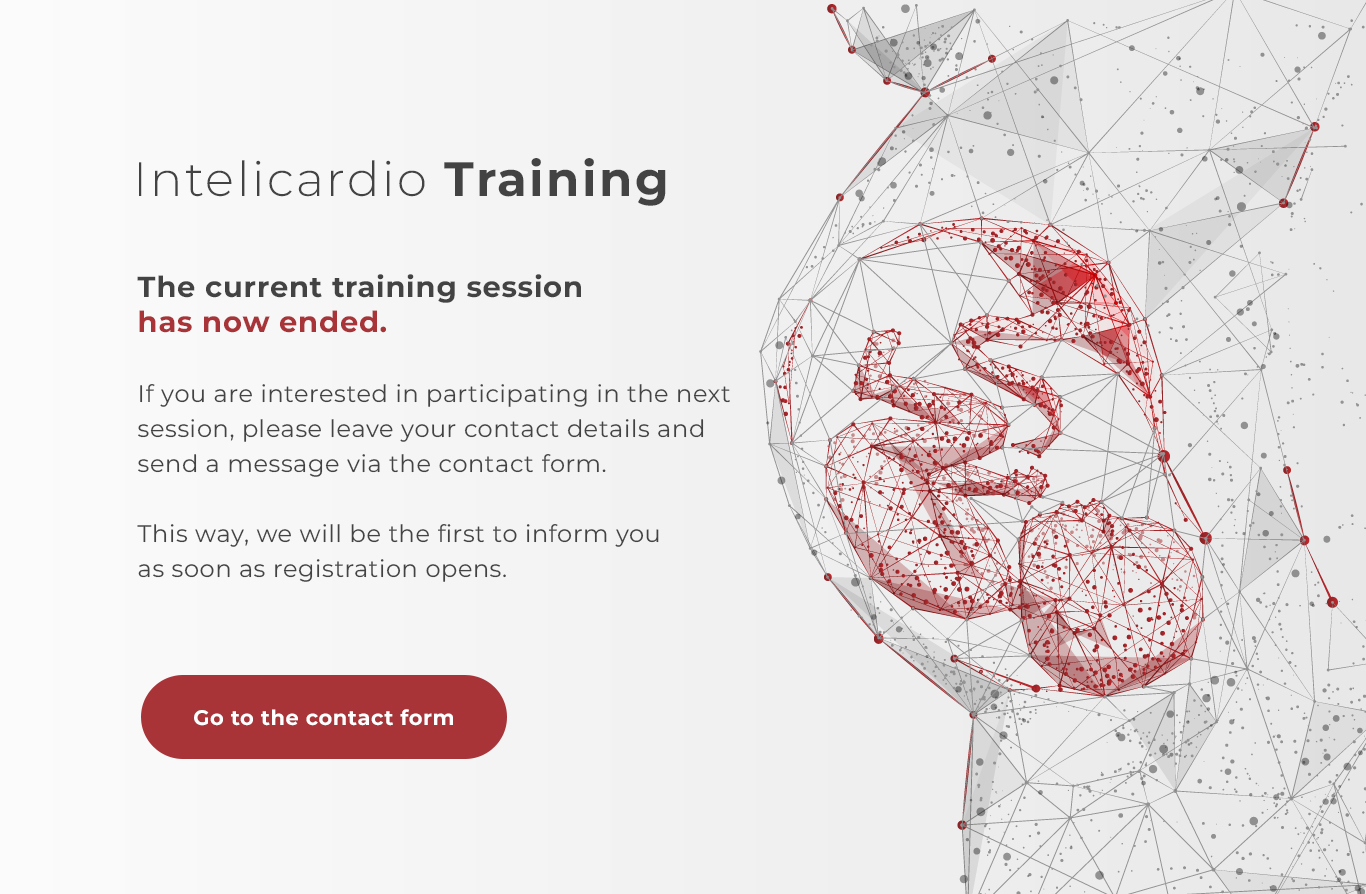Weź udział w szkoleniu
Cel szkolenia jest dostarczenie uczestnikom wiedzy i umiejętności niezbędnych do zrozumienia, wdrażania i efektywnego wykorzystywania w przyszłości sztucznej inteligencji w procesie diagnostyki WWS.
Moduł położniczy
Standaryzacja metody zapisu ruchomych sekwencji obrazów ultrasonograficznych serca płodu dla potrzeb anatomicznej analizy warstwowej metodą manualną i zautomatyzowaną z użyciem sztucznych sieci neuronowych.
Moduł neonatologiczny
Przygotowanie do sesji praktycznej, zbieranie danych ultrasonograficznych, analiza danych za pomocą AI, dyskusja i zadawanie pytań.

